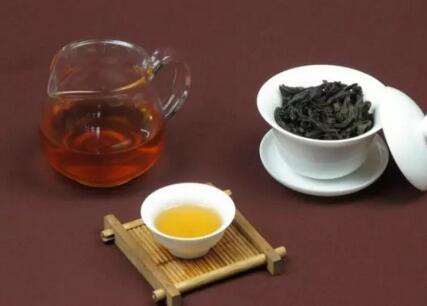
Many tea lovers have this problem: why does the same tea leaves, the same teaware, and the same water result in tea that doesn't taste as good as when others brew it?
Pay attention to three aspects
Assuming the tea quality is good, brewing a delicious cup of tea mainly depends on teaware, tea-to-water ratio, and steeping time.
1. Teaware
The appearance of a teapot or gaiwan doesn't matter as much as its capacity, which directly affects the tea-to-water ratio and steeping time.
For example, rock tea is often packed in 8g portions. A 100cc gaiwan and a 130cc gaiwan will require different amounts of water, leading to different flavors even with the same steeping time—the former will be stronger.
2. Tea-to-water ratio
Maintain a ratio of 1:50 (tea to water). Generally, use 3g for green tea, 4g for black tea, 7-8g for oolong tea, and 8-10g for dark tea or Pu-erh tea.
If unsure about the amount, experiment with different quantities and adjust accordingly.
3. Steeping time
Adjust the steeping time based on the amount of tea used. More tea requires shorter steeping and faster pouring, while less tea needs longer steeping.
Three influencing factors
1. Pouring technique
Pouring water along the edge or directly into the gaiwan doesn’t affect coarse tea leaves much.
For delicate tea leaves, avoid pouring directly onto the leaves.
2. Water temperature
Use 80-85°C for green tea, 85-90°C for black tea, and boiling water for other teas.
Brewing with 80-90°C water makes the tea smoother and reduces bitterness.
3. Water quality
Water varies by region, but bottled purified water is generally recommended.
Good water enhances sweetness and thickness—mountain spring water, for example, tastes sweeter than purified water.
Additional details to note
1. Ensure all tea liquor is poured out to avoid affecting the next infusion.
2. The pouring speed matters. The angle of the gaiwan determines how fast the tea flows out.
A wider gap speeds up pouring, while a narrower one slows it down. This small difference of 5-6 seconds can alter the tea's concentration.
Copying brewing methods blindly won’t work
Tea varies depending on the person and timing. Weather and the tea maker influence the tea's characteristics.
Remember the phrase "brew tea according to the tea." Different teas and quantities require different brewing methods.
Key takeaways:
1. Lower water temperature yields a milder, lighter taste; boiling water brings out stronger flavors and highlights strengths and weaknesses.
2. Too little tea or insufficient steeping results in a weak, thin brew; too much tea or over-steeping makes it strong or bitter.